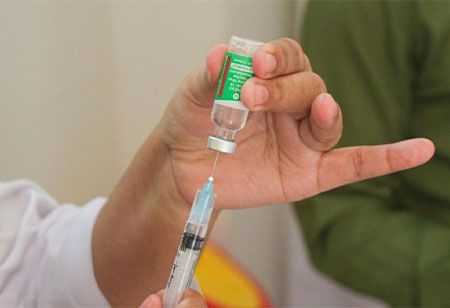Kuldeep Singh, Content Writer | Tuesday, 26 November 2024

India is often referred to as the "pharmacy of the world," and its pharmaceutical industry is renowned for producing high-quality generic drugs. These generics not only meet the demand in the Indian domestic market but are also widely exported across the globe, particularly to both developing and developed countries. However, despite India’s prominent position in the global pharmaceutical industry, the production process for generics faces numerous challenges. Every step, from raw material procurement to final product quality control, is crucial. A lapse at any stage could compromise the drug’s safety and effectiveness.
The quality of generic drugs is inherently tied to the quality of Active Pharmaceutical Ingredients (APIs). The API is the active ingredient in a drug, directly affecting its therapeutic efficacy and safety. Indian pharmaceutical companies typically source APIs from both domestic and international suppliers, which brings with it certain quality control challenges.
When procuring APIs, pharmaceutical companies must not only ensure that they meet pharmacopeia standards but also conduct rigorous assessments of the suppliers' quality management systems. This process involves supplier qualification, batch testing, stability data validation, and more. Given the increasing stringency of global drug regulatory agencies (such as the FDA and EMA) on API quality, Indian companies must strengthen their monitoring of API quality.
Formulation development and optimization is the core phase in generic drug production. Although generics share the same chemical composition as the brand-name drugs, their formulation must ensure stability and bioequivalence to the original drug. Indian pharmaceutical companies face several key challenges in this phase:
During this phase, the efficient operation of equipment is crucial. The pharmaceutical industry often uses cleanroom overhead cranes, designed for high cleanliness, precision control, low noise, and efficient motors. These cranes are used for handling raw materials, packaging finished products, and moving laboratory equipment, helping to improve production efficiency while safeguarding product quality.
Quality control is another critical aspect of the generic drug production process, encompassing every step from raw material inspection to the final product. Pharmaceutical companies typically adopt modern quality management systems, such as GMP (Good Manufacturing Practice) and ISO standards, to ensure the quality of their drugs.
The final inspection and packaging of pharmaceutical products are also crucial steps in the manufacturing process. Final product inspections involve testing for content, release characteristics, and stability to ensure the drugs meet the required quality standards.
At this stage, transporting and stacking the final products also involves significant handling. Cleanroom cranes play a crucial role in this process, enabling the factory to efficiently and safely transfer large quantities of finished goods, ensuring that drugs reach distributors and markets in a timely manner.
Finally, Indian pharmaceutical companies must face the regulatory requirements of global markets during generic drug production. Different countries and regions have different regulations for generics, and Indian companies must understand and comply with the regulations of the target markets. Particularly in stringent markets like the US and Europe, Indian pharmaceutical companies need to ensure their production facilities are GMP certified and that their products meet FDA and other regulatory agency approvals.
Moreover, drug registration and market access represent significant challenges for Indian pharmaceutical companies. To enter international markets successfully, Indian companies must prepare comprehensive documentation, provide clinical trial data, and undergo multiple rounds of regulatory review.
While Indian pharmaceutical companies possess distinct advantages in generic drug production, they must continuously strive for excellence in every step to stand out in the competitive global market. From raw material procurement to final product quality control, every stage requires high-level technical expertise and strict management systems. Faced with various challenges, the Indian pharmaceutical industry is constantly optimizing its production processes and enhancing quality standards to provide a more reliable global drug supply.